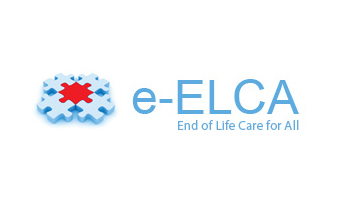I was recently told that my blog, published in September for the European Association of Palliative Care (EAPC), was number eight in ‘most viewed in 2016’ list. Why was this I wonder?
Did the informal style draw potential users in? Waiting for a meeting? Travelling on a train? A spare 20 minutes before lunch? Why not open an e-ELCA elearning session and learn something new?
Of course, members of the EAPC will think end of life care important, but was it the information about accessing on-line learning that was of prime interest to them especially those in Europe who can access the amazing content of over 160 sessions through purchase via e-Integrity?
Was it the Twitter sphere? @Cmf_elca doesn’t have a great following but those that follow me have a huge network across health and social care communities. Did those six retweets make a difference I wonder?
I’m not sure whether these were the key factors but I do know that the value of e-ELCA to teachers and learners seems to be increasing and the launch and completion of session data has shown dramatic rises in the past 18 months. Two factors are very definitely key to this. Firstly support from e-LFH on developing a targeted marketing and communications plan. This has included attending many national and regional conferences, handing out leaflets contributions to workshops and poster presentations.
We have also helped users navigate the programme to find the sessions that support their learning needs. Unlike some other programmes e-ELCA is not targeted at a single audience or a single curriculum. It has content that is designed to address the core competences required by the health and social care workforce in providing high quality end of life care, but what a care worker needs to know is quite different to what a GP trainee may need. Our learning paths have become an important feature to help users find the sessions they need and these continue to develop. Some learning paths are to support individual Trusts (for example the United Lincolnshire Hospitals Trust (ULHT) learning paths for doctors, end of life care facilitators and for other healthcare professionals) some are focused on staff groups (for example priorities for care of the dying person for nurses) and some support defined curriculum such as the NVQ levels 2,3 & 5
Many specialists in palliative care are using the sessions within their teaching. For example for a course about advance care planning (ACP) Introduction to Principles of Advance Care Planning may be used to bring course participants to a common level before attending a study day. This ACP course might also make use of e-ELCA material for discussion within a group (for example How to Negotiate Decisions Which May be Difficult to Implement) and perhaps as a way to consolidate or further learning (for example Developing Your Practice: Clinical Supervision and Further Reading).
There are tips about how e-ELCA can motivate and engage learners on the e-ELCA website. My newest venture to help learners and educators make best use of this amazing, free resource is a YouTube channel (a work in progress!)
The e-ELCA session that is my personal favorite is Spirituality and Philosophy of End of Life Care. It’s a session that makes me think and reflect even after over 25 years of supporting people who are dying. The importance of the holistic approach to people in finding themselves, is so beautifully articulated through a patient video. A good way to spend those 20 minutes!
Professor Christina Faull
Consultant in Palliative Medicine
LOROS Hospice, Leicester, UK
Association for Palliative Medicine National Clinical Lead for e-ELCA
@cmf_elca
YouTube e-ELCA



Leave a comment Required*